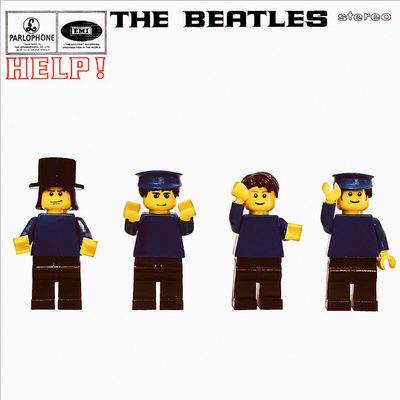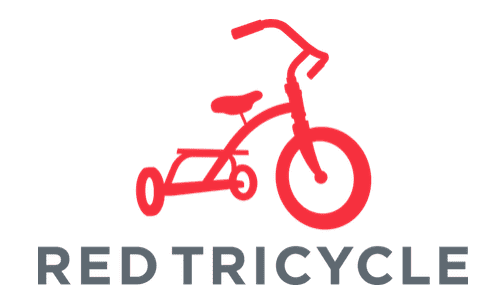I’m in a group of Mommas who realized something many years ago – we all had ADs: “Alpha Daughters!”
They were just Kindergarteners at the time, but most of them had older siblings and had been coming to the playground for years. They thought they ruled the school! We all realized their wonderful potential, but we also knew they might try to dominate everyone around them if we didn’t provide them with some positive guidance. The idea of “Girl Power” gatherings was born. With the enlisted help of the Mommas (and Dads, too!) we brought our girls together on a semi-regular basis for activities that encouraged friendship and connection.
Over the years, these gatherings have fostered positive self-esteem and a sense of community. I’d like to think that our trips to the Oregon Food Bank, creating gift packs for the homeless, and writing notes of hope and encouragement to children spending Christmas in the hospital helped these girls recognize their value and power in creating positive change in the world around them. These gatherings fostered compassion and empathy – values that are too short in supply.
This year, the ADs are turning ten. With so many of them involved with extracurriculars, finding time to gather became a challenge. So, we created an 8 week curriculum based on our original idea of the “Girl Power” gatherings and each week, one of the Mommas would come up with an hour long session to connect these girls to something larger than themselves.
Recently, it was my turn to lead an activity. I’d had some time to prepare, but was still wrestling with which activity to choose: Helping them to find their voices and be assertive (rather than passive or aggressive) or discussing why it’s so hard to ask for help. I asked my daughter and her BFF which one they’d prefer. Immediately, they both answered, “How to ask for help!” Their response was not completely surprising to me. After all, I know their Mommas! Both of us happen to be strong alpha females in our own right and I’m pretty sure our daughters come by this trait naturally!
I wanted to discuss this with the girls at an early age, because I don’t know many women, let alone mothers, who find it easy to ask for help. “DIY Office” might work a fair amount of the time, but “DIY Motherhood” is a recipe for disaster! Especially when we’re brand new to mothering, when so many of us desperately need extra help but never ask for it!
I asked the girls what they felt like when they had to ask someone for help. Here are some of their responses:
Weak. Stupid. Scared. Angry. Incapable. Dumb.
Then I asked them what it felt like when someone asked them for help. The difference in responses is amazing:
Smart. Strong. Good. Happy. Helping. Admired. Loved.
As we talked, we realized something – the idea of asking for help has been skewed from a very young age. We don’t consider anyone who asks us for help to be weak or stupid or incapable – so why do we hold ourselves to such a higher (and unreachable!) standard?
Asking for help is not a one-way, solo act. There is both giving and receiving involved. We’d already discovered how good it felt when we were asked to help someone else. Now we just needed to uncover all of positive character traits involved asking for help ourselves.
Asking for help requires us to be:
Open. Aware. Smart. Strong. Compassionate. Knowing. Worthy. Willing. Capable. Trusting. Understanding.
These were the words that I brought to the discussion. Then the girls started adding their own words to the white board:
Brave. Risk-Taker. Open-Minded. Balanced. Knowledgeable. Reflective. Caring. Loving.
Finally, I added the word “Vulnerable” to the list. It might not seem at first blush that this is a positive character trait, but I believe it to be one of the very best character traits anyone could possess when asking for help.
Feeling vulnerable is a prerequisite emotion when you ask for help – these two things walk hand in hand. But it’s not a bad thing! If your feeling vulnerable, you’ll need to be open and trusting. This is a great litmus test to decide who to ask for help about anything! New motherhood, for example.
Recognizing that parenting a baby is way bigger than anything else you’ve even considered doing in your life before now is the first step to realizing how much help you’ll need. Especially in the very beginning! When everything is so new and you’re so sleep-deprived, and you have bodily fluids leaking from every possible orifice, and you’re trying to get back to the woman you were before the baby came, instead of embracing the mother you have become. Why does it have to be so hard to ask for help, when every other mother before you remembers how hard it was for her, too? You’re not alone in these feelings of raw tenderness, of everything teetering on the edge, threatening to fall if even one thing shifts.
Use your feelings of vulnerability to guide you to the right sources of help. If thinking about asking someone for help makes you feel on guard and braced for attack, pay attention! Asking for help must come from someone who will make you feel better for the asking, not worse. Recognize that asking for help means you’re a strong and capable woman who understands her own limitations. You’re open to feeling worthy, cared for and loved. You’re asking for help from a person you’ve identified as a reliable, trusting source willing to be there for you in a way that is compassionate. Someone who will help you feel good about yourself and your ability to mother your child.
The obvious person to turn to first, is your partner. Parenting is a full-time, 24/7 job and trying to power through solo so you can maintain the veneer of “DIY Strength” is a huge detriment to you both! Your partner can lessen the load of new motherhood for you but they need to be able to claim their role as equal parent. Give up the sense of control you think you need to have over how they do things and let them parent their baby intuitively, without explicit input and direction from you. The whole family will thrive if you ask your partner for help.
But as new parents, you’ll likely need to outsource some of this help to support you both. If you’re family lives nearby they might be your next choice – but not always. Bringing a baby into the world causes changes throughout an entire family, like a pebble being tossed into a pond. Sometimes our own parents are exceptional choices for additional help, but sometimes they won’t be. If after making the ask, you don’t feel like the help was freely and willingly provided, and you’re not feeling strong and competent in your new parenting, than they should not be considered a trusted source of help for you as a new parent.
Which of your friends already have a baby? Do you respect them as parents? Will you be able to be authentic with them in the parenting arena? Can you freely share each other’s parenting successes, but also your parenting failures? Because my dear Mommas, there might be many successes, but there will definitely be many failures, too. Surround yourself with sources of help who will laugh and cry with you as you make your way as a new Momma – so that you know you’re not alone and that it will all be okay.
If you’re the very first in your circle to have a baby, then your task is a bit more daunting: you need to go to a new parenting support group and find your tribe. They are out there, I promise. But they won’t be walking up to your door and ringing the bell. They want to help you, they just don’t know you need any help yet.
The beauty of attending a new parenting support group (either private or hospital based) is that there is a range in ages of babies represented. So that means you might come in feeling like a rookie, looking to all the veteran parents out there who’ve made it through the trenches and have lived to tell the tale, soaking up all the wisdom they’re willing to share like a sponge. But guess what? It won’t be long before a new batch of rookies comes in to take your place and you realize that you are now a veteran in this role of parenting. It’s now your turn to answer the call for help.
And being able to help a new parent on their journey, even as you are plugging along on your own, holds the possibility of making you both feel smarter, stronger, and happier for the opportunity.
What words hold you back from asking for help? How are we, as women and new mothers in particular, made to feel that asking for help is a sign of weakness or imperfection? How could your life be easier today, if you stretched yourself a little and asked someone for help?





